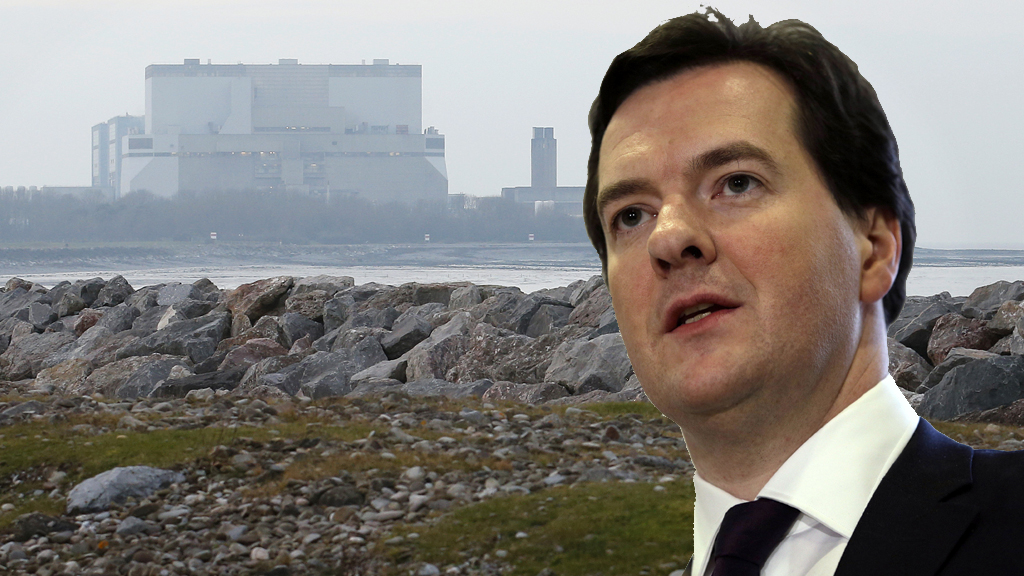Green light for first nuclear plant in two decades
The government grants planning consent for French firm EDF to begin construction of a new nuclear power plant at Hinkley in Somerset – but consent is not the same as actually getting the plant built.

First, the government and EDF still have to agree a price, Channel 4 News Science Editor Tom Clarke. Although EDF, and successive goverments, have said new nuclear would need no subsidy, that is no longer true.
The negotiations between the Department for Energy and Climate Change and EDF are to agree a “strike price” for each unit of energy generated by a nuclear plant.
It’s like a long fixed-rate mortgage – the government wants UK bill-payers to commit to a fixed price for nuclear energy for a 40-year period.
It’s understood the price currently under negoatiation is £96 or £97 per MW/hr. Current electricity prices rarely exceed £60, so it’s a hefty subsidy for nuclear power.
Diversity of power
According to one analysis this price consitutes a £50bn pound “bet” on where the price of electricity may end up in 2050.
To those favouring new nuclear power plants in the UK the price is a sensible reflection of the need for a diverse range of electricity sources in a future where all electricity is more expensive.
Watch more: Is nuclear the way forward for UK's energy crisis?
Assuming the DECC and EDF can agree on a deal it still does not guarantee a plant will get built.
The two new reactors that will make up “Hinkely C” will cost an esitmated £14bn. Right now that’s not money EDF has, and there is no clear indication that they will be able to raise it from banks unwilling to lend.
EU intervention?
Even if the men in Paris agree they can make a business case for the new plant, the men in Brussels might intervene.
A subsidy of £40 or so on a unit of electricity could well consitiute state aid and will require the blessing of the EU’s notoriously tough Competition Commission.
Yet despite the array of obstacles to getting nuclear plant built, the government is unlikely to walk away.
The country urgently needs new sources of non-fossil fuel power. And George Osborne urgently needs a major energy infrastructure project up and running to make his growth agenda look like it is actually working.
EDF may be able to persuade him and his Treasury colleages to dig deeper than they ordinarily would.
Read more from Science Editor Tom Clarke